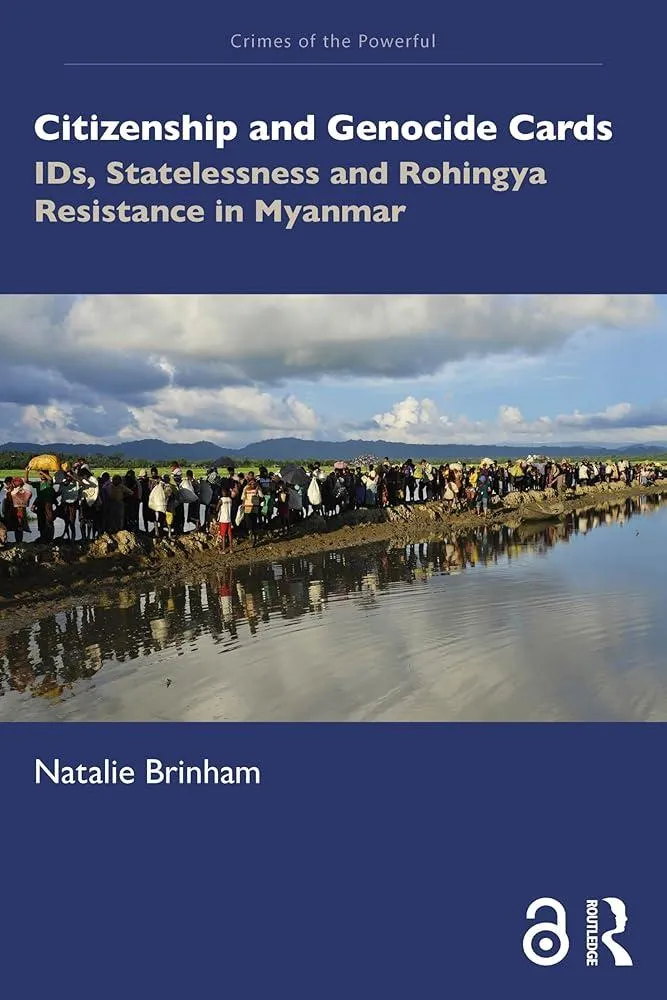Citizenship and Genocide Cards
IDs, Statelessness and Rohingya Resistance in Myanmar
(Author) Natalie BrinhamThis book draws on Rohingya oral histories and narratives about Myanmar's genocide and ID schemes to critique prevailing international approaches to legal identities and statelessness. By centring the narratives of survivors of state crimes, collected in the aftermath of the 2017 genocidal violence, this book examines the multiple uses of state-issued ID cards and registration documents in producing statelessness and facilitating genocide. In doing so, it challenges some of the international solutions put forward to resolve statelessness. Rohingya narratives disrupt a simple linear understanding of documenting legal identity that marginalises experiences of these processes. The richly layered accounts of the effects of citizenship laws and registration processes on the lives of Rohingya problematise the ways in which international actors have endorsed state ID schemes and by-passed state-led persecution of the group. This book will be valuable for scholars studying global criminology, state crime, development studies, refugee and migration studies, statelessness and nationality, citizenship studies, and genocide studies. The Open Access version of this book, available at www.taylorfrancis.com, has been made available under a Creative Commons Attribution (CC-BY) 4.0 license.
Natalie Brinham
Natalie Brinham is a renowned author known for her groundbreaking novel "The Glass House" which explores themes of resilience and hope in the face of adversity. Her lyrical prose and poignant storytelling have earned her critical acclaim, solidifying her as a significant voice in contemporary literature.


